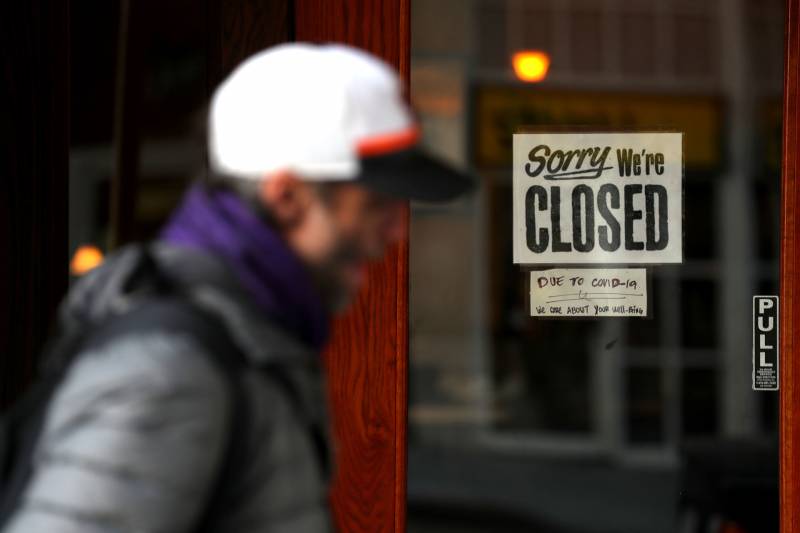In California, the death count from COVID-19 is now more than 48,000, and the U.S. may see No. 500,000 within a few days. But a new study from UCSF published in the American Journal of Public Health adds to that tally by counting indirect fatalities related to the pandemic — specifically, deaths resulting from job loss.
Past research has shown that the stress of losing a job increases the risk of suicide and drug overdose, and makes people more likely to put off going to the hospital or doctor.
Last spring, when the economic shutdown sent the U.S. unemployment rate to its highest level since the Great Depression, researcher Ellicott Matthay began crunching the numbers. Her team estimates that more than 30,000 excess deaths among 25- to 64-year-olds will have occurred by March because of pandemic-related job losses.
"Adequately responding to this pandemic involves not only controlling infections and deaths from the virus, but also addressing these indirect social and economic consequences for health," Matthay said about the findings.
On Thursday, KQED's Tara Siler interviewed health correspondent April Dembosky about the study. The following has been edited for length and clarity.
What did the study find?
Researchers from UCSF looked at the job-loss numbers from the first shutdown in March and April 2020, and they estimated that by the time we hit the one-year anniversary, more than 30,000 people will have died as a result of unemployment.
Do we have a sense of who is most likely to die after losing a job?
Yes, we’re seeing a double burden on communities of color who have been hit hard by the virus but also by the economic impacts. Unemployment deaths will disproportionately affect Black Americans, men, people 45 years old or older, and those with a high school education. These are the groups where people are more likely to lose a job, and more likely to experience negative health effects as a result.
And these 30,000 unemployment-related deaths are an estimate?
Right, these are projections based on different data sets. Because if someone dies from a heart attack or a drug overdose, it’s hard to know when it was related to job loss. Here’s how researcher Ellicott Matthay explained it:
"Death certificates don't tell people's whole life story," she said. "So we know the immediate cause of death, but we don't know the history that led to that cause of death. So we have no way to count in the same way we count COVID deaths to count unemployment- related deaths."
Also, while researchers used the federal definition of unemployment, there are different ways to count who’s missing from the workforce. If you add in gig workers, for example, that would increase the estimate. At the top end, the researchers say there could be more than 200,000 unemployment-related deaths resulting from the halt to economic activity last spring.
We just had another coronavirus surge, and we've seen more layoffs since this study was completed. Is there anything that can be done to help the unemployed ?
There are some policies and services that we know could help, such as expanding access to mental health services, reemployment counseling and extending unemployment benefits. And we have done some of this during the pandemic, especially trying new kinds of unemployment benefits. We don’t know yet what the impact of those benefits may have on health outcomes, but I think more than anything, the researchers just want to remind people that responding to the pandemic isn’t just about controlling infections and deaths, but also addressing these indirect social and economic consequences on our health.

